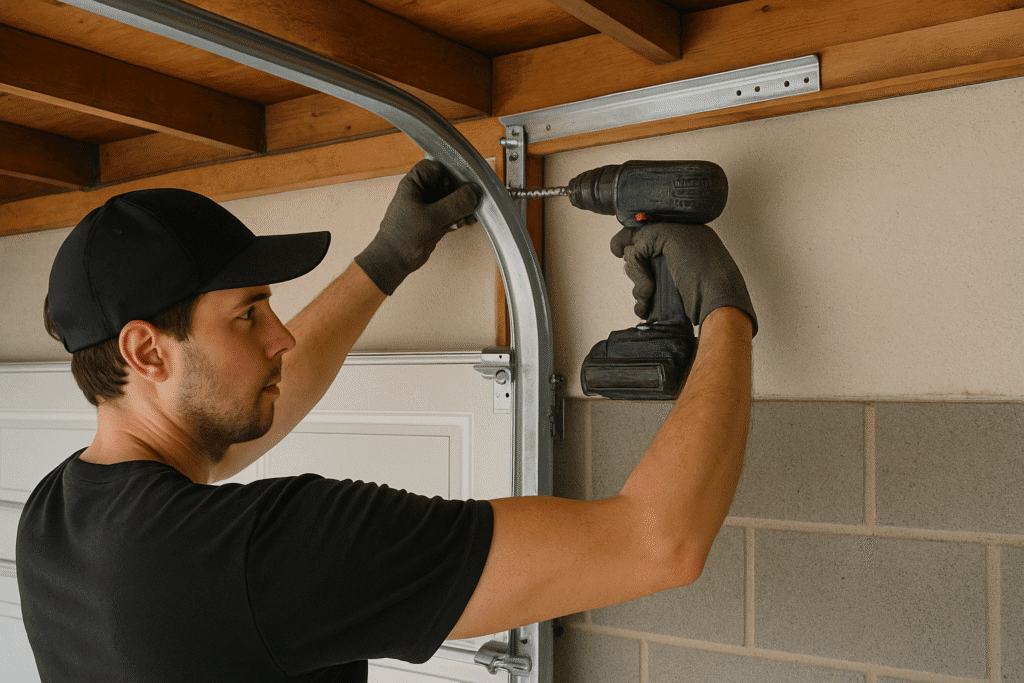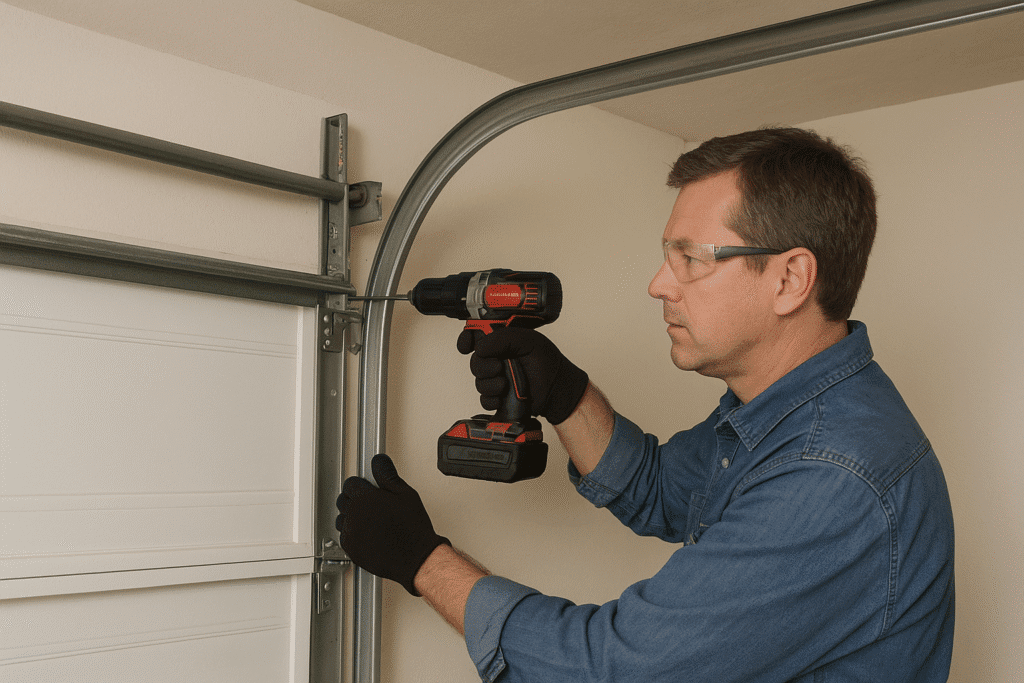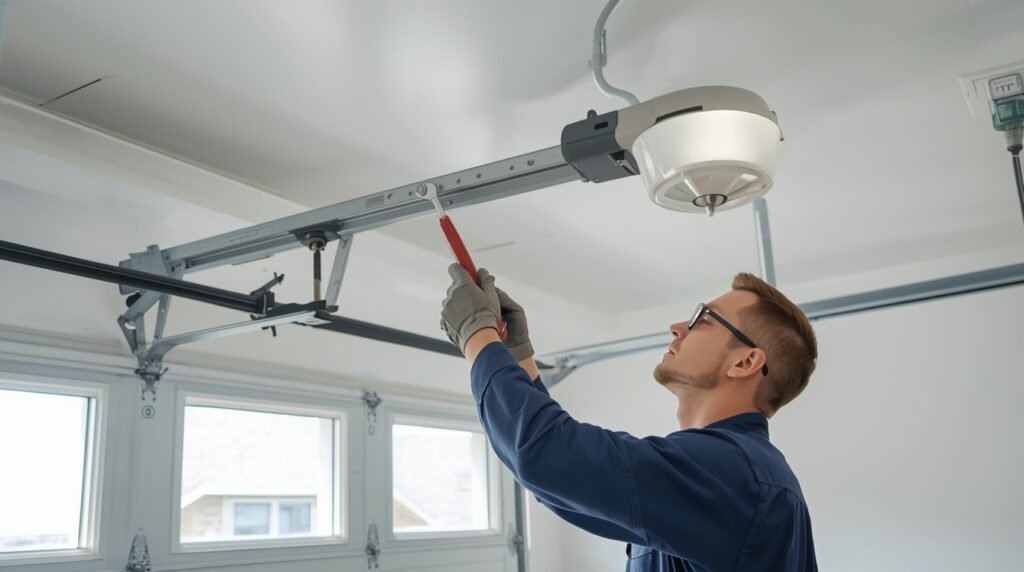Garage Door Off Track? Here’s When to Replace Instead of Repair
A garage door that jumps off its track is more than just an inconvenience—it’s a serious safety hazard. When your garage door is off track, it can fall suddenly, damage property, or even injure someone. While many homeowners assume a quick repair will fix the issue, sometimes replacement is the smarter and safer choice.

In this guide, we’ll explore why garage doors go off track, signs that repairs may not be enough, and when full replacement is the best solution.
Why Do Garage Doors Go Off Track?
Garage doors are heavy systems that rely on perfectly aligned tracks, rollers, and springs to move smoothly. When one part fails, the door can derail.
Common causes of off-track doors include:
Broken or worn rollers – Rollers that crack or wear out can jump off the track.
Bent or misaligned tracks – Impact from vehicles or heavy force can bend tracks out of shape.
Loose hardware – Bolts and brackets may loosen over time, causing instability.
Spring or cable failure – If a spring or lift cable breaks, the door may collapse off the track.
Obstructions – Objects in the track can force the rollers out.
When Repair is Enough
Not every off-track door requires replacement. In many cases, repairs can restore functionality.
Situations where repair may work:
Minor track misalignment – A technician can adjust and realign the track.
Worn rollers – Replacing rollers can bring the door back on track.
Loose hardware – Tightening brackets and bolts may resolve the issue.
Cable adjustment – Reconnecting or replacing cables can restore balance.
If the door is in generally good condition and the damage is minimal, repairs are often the most cost-effective choice.
When Replacement is the Better Option
Sometimes, repairing an off-track garage door is only a temporary solution. If the damage is severe, replacement is the smarter investment.
Signs you should consider replacement instead of repair:
Extensive Track Damage – If the tracks are badly bent or warped, repair may not restore full function.
Door Panel Damage – Cracked or dented panels may prevent smooth operation.
Old Age – Garage doors over 15–20 years old may be better replaced than repeatedly repaired.
Frequent Off-Track Issues – If your door keeps coming off track despite multiple fixes, the system may be failing.
Outdated Safety Features – Older doors may lack modern safety sensors and auto-reversal systems.

Safety Risks of an Off-Track Garage Door
An off-track door should never be ignored. Attempting to force the door open or close can make the situation worse.
Dangers include:
Door collapse causing injury or property damage.
Strain on opener system leading to motor failure.
Increased wear on springs, cables, and rollers.
Complete breakdown requiring emergency service.
Repair vs. Replacement: Cost Comparison
Understanding costs helps homeowners make informed decisions.
Garage door repair (off track): $125 – $400 depending on parts needed.
Full garage door replacement: $800 – $3,000+ depending on material, size, and features.
While repair is less expensive short-term, replacement may be more economical if the door is old or heavily damaged.
Conclusion
A garage door off track is a warning sign that should never be ignored. While small issues can often be repaired, severe damage, frequent failures, or old age may signal it’s time for a replacement.
Choosing between repair and replacement comes down to safety, cost, and long-term reliability. If you’re ever unsure, consulting a certified garage door technician is the best way to ensure your door is restored to safe and efficient operation.


Pingback: Garage Door Inspection Services That Protect Your Home and Family